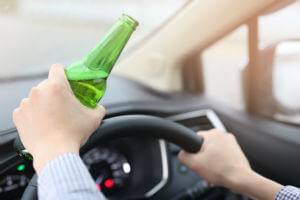 One of the first things an attorney will review with you after a car accident is how it occurred. Your attorney will need to find out if negligence was involved.
One of the first things an attorney will review with you after a car accident is how it occurred. Your attorney will need to find out if negligence was involved.
In some cases, the negligence that caused your accident could be considered gross negligence. If your lawyer can prove gross negligence, you may be able to pursue punitive damages in addition to other forms of compensation.
An experienced Albany car accident lawyer from Roden Law can discuss your claim and explain whether negligence or gross negligence may have been involved in your crash. Contact us to schedule a free, no-obligation consultation.
What Is Negligence?
Negligence is the failure to exercise reasonable care and caution that a prudent person would exercise under similar circumstances. People are expected to consider foreseeable consequences and take reasonable steps to avoid causing harm to another person. Negligence often involves a careless mistake or lack of attention.
Ordinary negligence is carelessness that results in someone else’s injury. For instance, negligence may be involved if:
- A driver gets injured because another driver does not fully stop at a stop sign and collides with the other vehicle
- A driver turns left and crashes into a car that had the right of way through the intersection
- A driver rear-ends another car because he or she was texting while driving
These drivers may be legally responsible for damages stemming from their accidents, including property damage, medical expenses, lost wages, and pain and suffering.
What Is Gross Negligence?
Gross negligence is more than mere carelessness or inaction. Gross negligence reflects extreme indifference or reckless disregard for the safety of others. The person who engages in gross negligence should have been able to foresee that harm was likely to result.
Gross negligence often results in more serious injuries and a higher risk of death.
Examples of gross negligence may include:
- A driver speeding through a school zone or an area with heavy pedestrian traffic
- A driver getting drunk and driving a car
- A driver goes out on the road even though his or her car has a problem that increases the risk of a crash
What Are Punitive Damages?
Punitive damages may be awarded in cases involving gross negligence. Punitive damages are meant to punish the wrongdoer and deter similar conduct in the future. Accidents involving gross negligence often involve deliberate actions or extreme carelessness, so a court is more likely to award punitive damages in these situations instead of in cases involving ordinary negligence and a simple mistake.
To receive punitive damages, you must specifically request them in your lawsuit. Additionally, the burden of proof is higher; you must present clear and convincing evidence of the egregious nature of the at-fault party’s actions.
Contact an Attorney to Discuss Your Claim
If you were hurt in a car crash and believe it was caused by recklessness or gross negligence, it is important that you speak with an experienced lawyer as soon as possible. The Roden Law team is available to review your accident to determine if there may be grounds for a claim.
At Roden Law, we charge no upfront fees and provide a free consultation to discuss your claim. Our lawyers work on a contingency fee basis, so there is no fee unless we win. Contact us today to get started on your claim.
